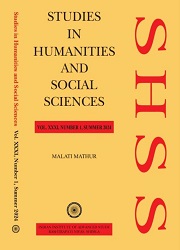Reflecting Humanity
Universal Ethics in Indian English Writings
Keywords:
Universal Values, Ethics, Transformative Literature, Environmental Ethics, Philosophical Influences, Indian ScripturesAbstract
The universal moral values of compassion, justice, equality, and resilience form the ethical framework for various societal and cultural narratives. The current paper attempts to analyse the reflection of these values in Indian English literature by studying Mulk Raj Anand’s Untouchable, Arundhati Roy’s The God of Small Things, and Amitav Ghosh’s The Hungry Tide. This is a qualitative work, purely based on textual analysis wherein methods of cultural criticism and ethical theory have been applied to showcase how writings mirror universality in norms against the socio-political realities of caste oppression, gender discrimination, and ecological destruction. It will evoke folk storytelling traditions and philosophical legacies of India in making these values relevant for confronting contemporary global challenges. Findings highlight that Indian English literature is not a mirror of global principles but an expression that confronts those morals as a motivation for personal change and social development. By integrating universal values in stories that question established hierarchies, this literature clarifies the transformative power of literature as an avenue for ethical exploration and social transformation. While continuing existing dialogues within the realms of ethics, cultural studies, and literary criticism, this paper reaffirms the ability of Indian English writings to foster common awareness around humanity’s collective moral principles.



